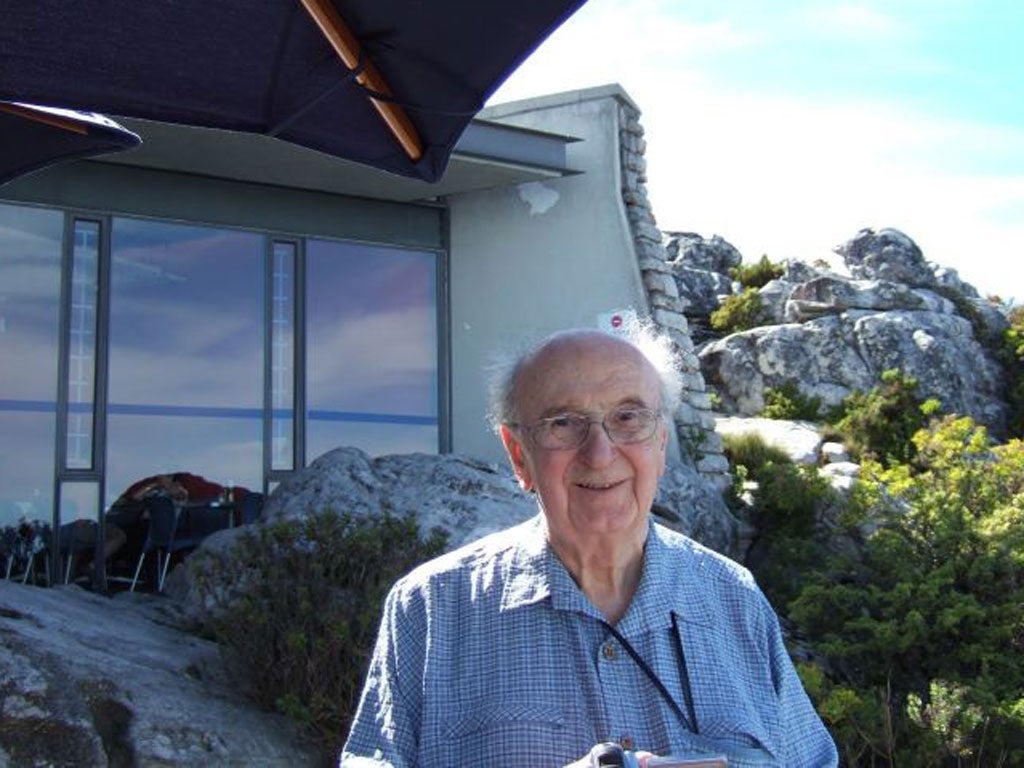
Your support helps us to tell the story
From reproductive rights to climate change to Big Tech, The Independent is on the ground when the story is developing. Whether it's investigating the financials of Elon Musk's pro-Trump PAC or producing our latest documentary, 'The A Word', which shines a light on the American women fighting for reproductive rights, we know how important it is to parse out the facts from the messaging.
At such a critical moment in US history, we need reporters on the ground. Your donation allows us to keep sending journalists to speak to both sides of the story.
The Independent is trusted by Americans across the entire political spectrum. And unlike many other quality news outlets, we choose not to lock Americans out of our reporting and analysis with paywalls. We believe quality journalism should be available to everyone, paid for by those who can afford it.
Your support makes all the difference.An MP, in the nature of his responsibilities, gets to know the boss of a factory which employs hundreds of his constituents at a high technical level pretty well. For 17 years, from 1968 to 1985, when he was the general manager of the important Scottish House of Ferranti's, and in direct charge of the new huge, then state-of-the-art factory at Crewe Toll in Edinburgh, I had monthly dealings with Donald McCallum. He was quiet, softly spoken, somewhat taciturm, a technically supreme and managerially competent leader of industry.
The union officials and shop stewards would acknowledge that McCallum was straight and always courteous to them, and would punctiliously honour any agreement. McCallum was, equally, accorded respect by his senior managerial colleagues, some of whom, like Bill Gregson, were themselves heavyweights in the UK's industry affairs. McCallum commanded authority in Scottish industry.
Born and brought up in Edinburgh, McCallum had an excellent grounding in mathematics at George Watson's College and completed a BSc at Edinburgh University, where he was not only taught by, but taken under the proverbial wing of, the Tait Professor of Physics, the great German-Jewish Nobel Prize-winner, Max Born. Born recommended McCallum to the Admiralty Signal Establishment, where he participated in cutting-edge work in the detection of U-boats. McCallum told me years later that his time at the ASE had imbued him with a sense of urgency and decisiveness which held him in good stead throughout his industrial responsibilities; "career" is not quite the right word to associate with McCallum.
On demobilisation, after a short period at the Standard Telecommunication Laboratories, McCallum chose to be close to his parents' home and return to Edinburgh to join the then small but go-ahead firm of Ferranti's. Here he was spotted by John Toothill (later Sir John), who had been the dynamic general manager since 1943.
Toothill, author of the seminal Report on the Scottish Economy (1961), which bears his name, leant heavily on McCallum, as he acknowledged, for both background information and proposals. The flamboyant Toothill and the reserved Baptist McCallum worked effectively in harness. Eric Jamieson, physicist and marketing manager for Ferranti and a company director, recalled, "Donald McCallum was thought by all of us who worked for him to be a superb boss."
As one of McCallum's successes, a decade later, in the three-year position of president of the Scottish Council of Development and Industry, I was often advised by the experienced and wise secretary of the SCDI, Alan Wilson, "This is the line that Donald McCallum would have pursued."
Apart from being an authoritative manager of a significant business, McCallum's other achievement was his contribution to technical education. Chairman between 1984 and 1987 of the Scottish Tertiary Education Advisory Council, he had also given huge service as a member of the Court of Heriot-Watt University, and during the development of Napier Polytechnic (1988-93), which became Napier University.
A few weeks after I took my parliamentary seat in June 1962, I asked a Question about industry in Scotland to Basil de Ferranti, MP for Morecombe and Lonsdale and the young Parliamentary Secretary to the Ministry of Aviation. A few days later, Basil observed to me in the Commons corridor, "If you don't believe me, go and ask Donald McCallum." I did – and went on asking him questions for the next 30 years.
Donald Murdo McCallum, electrical engineer and businessman: born Edinburgh 6 August 1922; Admiralty Signal Establishment 1942–46; general manager, Scottish Group 1968–85, director, 1970–87 Ferranti plc; chairman, Laser Ecosse 1990–95; CBE 1976, Kt 1988; married 1949 Barbara Black (died 1971; one daughter), 1974 Margaret Illingworth (died 1997), 2007 Jill Morgan; died 18 October 2011.
Join our commenting forum
Join thought-provoking conversations, follow other Independent readers and see their replies
Comments